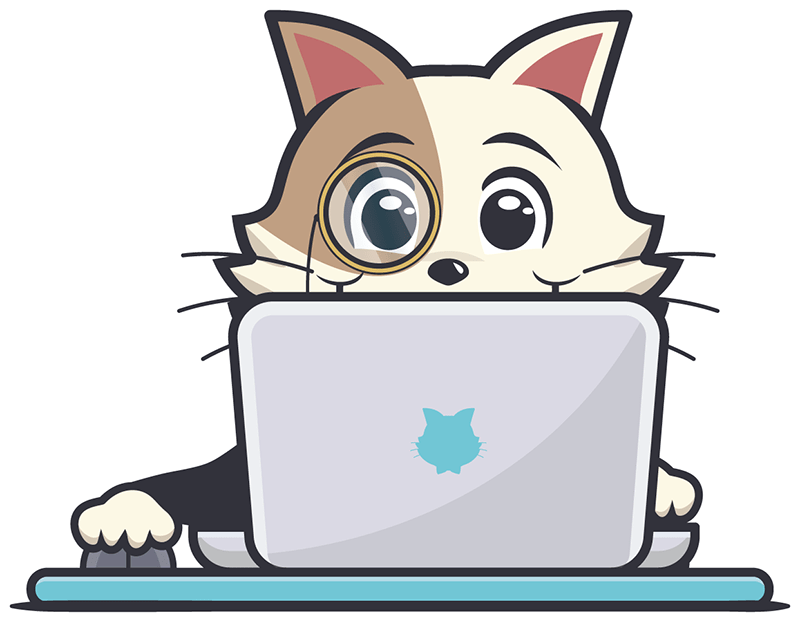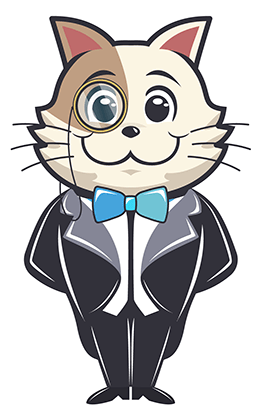On-page SEO refers to optimizing on-page elements on a web page to get a higher ranking on search engines. It sounds simple, but there are a lot of factors that go into on-page optimization services.
Your on-page SEO strategy could be to improve SEO content. Or to improve web page structure. Or even to change out your images.
All of these factors help search engines determine if your site provides a good user experience (UX). Google wants to provide users with relevant and trustworthy content on easy-to-navigate websites – that’s how they make money.
To better understand on-page SEO, it helps to take a closer look at the history, as well as compare on-page SEO to other types of SEO.
The History of On-Page SEO Services
On-page SEO is a relatively new term, but the strategy is as old as SEO itself. It’s just that on-page SEO used to be almost the whole of SEO.
While PageRank, one of Google’s first algorithm updates, focuses on links and link authority, SEO in the 90s and 00s was still heavily based on keyword research and strategy. Once you’ve found a good keyword, you could simply fill your text with repeated mentions and watch your search engine rankings improve.
Subsequent Google updates have phased out a lot of the more spammy tactics of yore and introduced more ranking factors. On-page SEO now requires a much subtler touch that looks at far more metrics like bounce rates and conversions.
One thing hasn’t changed, though, and that’s that Google makes its money by providing users with a good experience. If your website provides users with a good experience, it’ll rank well on search engine results pages.
How Does On-Page SEO Compare to Off-Page SEO?
If on-page SEO is all about the factors you see in a web page’s code, then off-page SEO is about everything happening off-screen.
For years, that almost exclusively referred to linking. Backlink building, or getting web pages to link back to your site, was the main game in town.
Backlinks and link building are still extremely important, but social media has shaken things up. Social media mentions don’t seem to be one of Google’s ranking factors, but building a brand through social media does seem to boost a company’s rankings. Reviews are also a big factor for local SEO.
How Does On-Page SEO Compare to Technical SEO?
There’s a fair bit of overlap between on-page SEO and technical SEO, but they are different things. While they both look at a web page and its code, on-page focuses on the UX, while technical SEO focuses on the code itself.
Technical SEO is like a construction crew focusing on building a solid and stable building. On-page SEO is like the contractors who come in after to paint, lay flooring, and install appliances. Both are needed to make a house habitable, just like both technical and on-page SEO create good web pages.
Major parts of technical SEO service are making your site mobile-friendly and improving page speed, for instance.
The first step towards improving your technical and on-page SEO is an SEO audit. Go with SEOButler for yours.
Aspects of On-Page SEO
There’s a lot that goes into building a website, so there’s a lot that goes into on-page SEO and building your website traffic.
Have questions or don’t know how to get started in the SEO process? Talk to us about our on-page SEO services.
Indexing
Search engines like Google can’t rank what they don’t see. If some individual pages on your website aren’t getting ranked, that might be because they’re not indexed.
Pages can be unindexed for all kinds of reasons. Sometimes, it’s because you have two pages with duplicate content.
This can happen without any nefarious intent – maybe you just copied text from completed page X to use as a placeholder on in-progress page Y. The problem is Google sees the same content twice and isn’t sure which page to index. It could index page Y, which is unfinished, instead of page X, which you really want to rank.
Duplicate content isn’t the only reason your pages fail to rank. Indexing relies on bots referred to as search engine spiders. These bots “crawl” the web collecting what Google and other search engines need to know.
When these bots get to a website, a file called robots.txt provides them a guide for what individual pages they should or shouldn’t visit. If your robots.txt file isn’t configured properly, you could be telling search engines to index the wrong pages.
Keyword Research
Keyword research is a mixture of analysis and art – it’s all about trying to find the relevant keywords for your web page to rank.
Target keywords used to be strict, exact phrases. These days, though, Google uses an algorithm called BERT to look for related words or phrases on a page.
In the past, Google would look specifically for an exact keyword like “Peoria, IL dog groomer” and rank solely on that. These days, it also looks for related words and phrases like “central Illinois” or “pet care” to make sure the page is relevant.
This has made it easier to perform keyword research since SEOs don’t have to worry as much about fitting in multiple awkward keywords. On the other hand, pages can now optimize for dozens of different keywords, and it gets overwhelming fast, especially with local SEO.
You only want optimization services for keywords that will bring in people actually interested in your product. High search volume sounds great until you realize none of those clicks wind up buying anything.
It’s easier to perform keyword research with an SEO analytics pro by your side. Contact SEOButler today to see how we can improve your SEO campaigns.
Location
SEO may not be real estate, but location still matters. Your main keyword should be within the first 50-100 keywords of your content for the best search engine optimization.
Keywords should also be located in your title tag and header tags.
Frequency
Keyword density is the next hurdle. You want to use a word or phrase enough so that the search engine is aware of what your page is about, but you don’t want to go overboard and risk seeming spammy.
Tools like BERT have helped to make keyword frequency slightly less important to on-page optimization than it once was. But it’s still a key signal for relevance.
And keywords aren’t just for the body of your content – titles, header tags, and even your URL address should use them, too.
Web Page Organization
Web page organization is a big part of UX. Things like your title tag, header tags, and meta descriptions can help both Google and users better understand your web page.
Title Tags
One of HTML’s primary jobs is to help structure your web page. You can use certain meta tags to help indicate more important lines of text, like page titles and headings in an article.
Good use of HTML tags can help your SEO in 2 ways. First, a meta tag can help provide additional data that can help Google understand your web page better, which can boost your place in search engine results.
Secondly, a well-organized website will attract more eyeballs and keep them on your site longer. That can be a major boost to your organic traffic, which will also help your SERP.
Title tags are the most important of the meta tags. Whatever you pin with a title tag will be:
- The web page title at the top of a browser tab
- The title that shows up when you paste a link into social media
And most importantly:
- The title of your website in Google’s organic search results.
Title tags and title tag optimization are crucial to on-site SEO. You should choose a snappy but descriptive meta tag for your web page and include your target keyword whenever possible.
Meta Descriptions and Text
Meta descriptions and meta text (sometimes referred to as alt text) are another major use of HTML. Meta descriptions are a way for you to give Google and other search engines a quick snapshot of your page.
What typically shows up beneath the title of your page in organic search results is the meta description given for that page.
Meta descriptions, like title tags, should be short, descriptive, and include the most important keyword.
Meta description has another important use, and that’s captioning photos. This may seem like just a nice-to-have, but with an estimated 4 million people in the US using a screen reader to browse the web, captioning is actually an accessibility issue.
Most SEOs expect Google to put a bigger priority on user accessibility in updates to come. Best to be prepared early with page optimization and good meta text!
Internal Linking
Internal linking is another important part of on-page SEO that’s sometimes missed. If people come to your site through search, a certain percentage won’t find that page to be a good fit.
BUT, you may have something on another page that’s perfect for them. You want to make the journey there as easy as possible with internal links.
An easy-to-read menu and clearly labeled internal links on the page will help you keep customers on your site, if not on the exact page.
External Linking
Links to outside sites and pages are important to on-page SEO, too. External links provide your potential customers with more relevant information, thus boosting user experience.
These links can also help Google better understand your topic niche.
Need help with your SEO? Check out SEOButler’s SEO services!
Quality Content
EEAT and YMYL
EEAT means “Experience, Expertise, Authority, and Trustworthiness” and YMYL means “Your Money or Your Life.” These terms also refer to Google updates rolled out over the past few years to combat misinformation.
If you work in the health or financial sectors, make any health or financial claims in your page content (say, for a gym, food product, or specific investments), or if you have an ecommerce shop on a website page, Google holds you to a very high standard regarding EEAT – you are literally dealing with someone’s money or life.
Whether you think you have YMYL content or not, EEAT is still a good way to approach your website’s content.
- Experience – Is the content written by someone with direct experience of the product or service?
- Expertise – Is this writer an expert in the field? Does this person have mentions and links demonstrating their knowledge?
- Authority – What’s your website’s reputation in your industry? Do people link back to your content?
- Trustworthiness – Is your content correct? Are any financial transactions encrypted?
Original Content
This sounds like a no-brainer, but the content on your website should be original, not scraped or minimally rewritten from another site.
Even your own website can feel impersonal at times like you’re howling into the void. No one will notice if you cut a few corners, right?
But both real people and Google’s algorithm do read it.
When real people see unoriginal content, they value your website less. They’ll leave your site, skip out on a purchase, and maybe even tell their friends on social media. That lowers your organic traffic.
When Google sees your unoriginal content, you’ll be hit with a big penalty that can hang around for a while and even ruin any future SEO campaign.
Content Optimization
Keywords aren’t quite as important as in the past, but they’re still a major signal for search engines to check whether your content is relevant.
Good content repeats keywords and phrases but not frequently enough to look like spam.
Good content should also be well-spaced and easy to read. Users want something they can skim on their desktop or scroll on their phone.
Content by Humans, for Humans
You may be tempted to use AI-generated content. Don’t!
Both potential customers and search engines will notice your AI content, just like they notice plagiarized content. Think of how you felt the last time you looked for information online and found an AI article.
You also shouldn’t get so lost in the weeds of optimization that you wind up producing something boring or difficult to read. The goal is to get human eyeballs in front of your page, so write like it!
Rich Snippets
Featured snippets (the result you sometimes see in a box with bigger text before any other Google search results) aren’t quite the SEO prize they once were. However, sometimes, it still makes sense to try to own this “position 0” by providing a very short and clear answer for a target keyword.
Rich snippets are ones that may show a starred review, related topic links, or other information within the organic search result. It’s generally a good idea to optimize your site for rich snippets by having a clear site structure and using plenty of tags.
Optimizing Images
Image optimization is a higher-level SEO strategy that can boost your SERP from good to great!
Images can help to break up a text, making it much easier to read. And images should be properly sized and varied (no using the same picture twice).
An SEO audit can help you see what on-page SEO services you need. Contact us to get started.
Why SEOButler for Your On-Page SEO?
There’s no shortage of self-proclaimed SEO experts out there. Companies that have an established track record and experience following industry changes are much harder to find.
Thankfully, you’ve found SEOButler, your search engine optimization partner!
Track Record of Success
With over a decade in the industry, we’ve seen new technologies and new algorithms. There have been a lot of changes in SEO services, and companies need a digital marketing agency that can roll with the punches.
At the same time, SEO is still about providing quality content to those looking for it. It’s about presenting your product to customers in the best possible light.
At SEOButler, our SEO service has changed with the times. But we’re also not dazzled by SEO tactics that are too trendy or too clever by half. Our wisdom is your gain.
Content Expertise
At SEOButler, we cultivate a staff of writers with varied interests and expertise. That means you don’t have to worry about getting a poorly researched article that doesn’t understand your industry.
Whether you’re in beauty or construction, health or travel, we’ll deliver well-written content that demonstrates industry expertise.
Multiple Kinds of Content
From blog posts to buyer’s guides, there are a lot of different kinds of content you can post on your website.
At SEOButler, it’s easy to order exactly what you need.
Full-Service Digital Marketing
On-page SEO services are great, but they work best as part of an overall SEO strategy that includes technical and off-page SEO, too!
SEOButler offers a full range of digital marketing and SEO services, including social media support, backlinks, and technical SEO audits. Don’t go with an on-page SEO company that keeps you stuck there – go with a company that can give you a fully formed strategy.
Contact SEOButler Today for On-Page SEO Services!
Ready to move your site up the search engine results? Check out our on-page SEO services (as well as our other SEO services) today!
Book a free consultation now!


